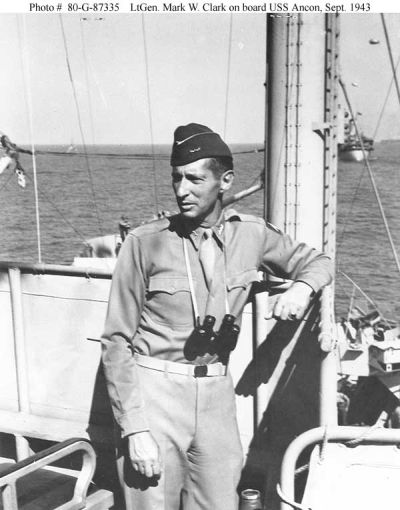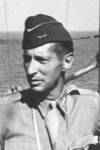I Was There! - I Saw the Fateful Battle of Salerno Beaches
The War Illustrated, Volume 7, No. 165, Page 314, October 15, 1943.
From the third to the seventh day the issue of the nine days' battle for the beaches of Salerno, Italy, hung dangerously in the balance. How the Fifth Army finally won what Mr. Churchill called "an important and pregnant victory" is told by L. S. B. Shapiro, Combined Press reporter.
Now that the Battle of the Salerno bridgehead has been won it is possible to reveal details of the 12 tortured hours on the night of September 13-14, when the Fifth Army only held on by the skin of their teeth. Fewer than 100 men and half-a-dozen cleverly placed anti-tank guns stood between the Germans and the sea on that desperate night.
The heroism of these men and the coolness of the Fifth Army's High Command, which directed operations virtually under the guns of the German tanks, averted disaster and turned a moment of German hesitation into an eventual victory for the Allies.
Toward sunset on that fateful night the Germans had gathered enough strength to strike furiously down the dead centre of the Allied bridgehead at the confluence of the Sele and Carlore rivers, where they were only three miles from the sea.
Allied forward troops, exhausted after four days of continuous fighting, were ill-prepared for the onslaught. All day Monday our High Command hoped that the Germans would not make the expected counter-attack before Wednesday, by which time we should have been safely entrenched.
At nightfall the Germans drove through our loosely-held front line between the rivers, at first only with infantry, then with tanks. As the full moon lighted their path they thundered on a three-mile front towards the sea from which we were landed.
I was bivouacked near the junction of the rivers when word was received at 9 p.m. that enemy tanks were within 500 yards of us. There was nothing to stop them. The camp was quickly organized for the last-ditch defence. Cooks, clerks and orderlies, with armed patrols, were sent out behind us. At that critical moment a reconnaissance car armed with only light anti-tank weapons arrived to survey the situation.
Close behind the lines Gen. Clark coolly directed the scant organized forces at his disposal. He rushed a handful of heavier field guns to cover German exits from the bottleneck of the two rivers and to protect the main avenue of Allied reinforcements.
We waited breathlessly for the German onslaught, but it did not come. The Germans hesitated to make the gamble, and our guns, though pitifully few, opened up on them. Gun crews loaded and fired without pause. Off-shore, naval guns joined in.
The German tanks, on the brink of success, failed to rush our scanty defences. Apparently puzzled, they dug into new positions to await daylight. Behind our furious gunfire we frantically reinforced a new defence line. When dawn broke the German chance of success had gone. Then we began the painful process of pushing them back.
Previous and next article from I Was There!
I Was There! - I Saw Victory on the Land Army Battle Front
Touring the harvest fields, Patricia Ward of The Evening Standard (from which this story is reprinted) wrote in late August how farmers are rejoicing at the rich yield of Mother Earth: reward for our
I Was There! - With the Camerons I Fought at Four Hills
To the thunder of guns by the hundred, the 8th Army, in Sicily, launched a near-midnight attack against the Four Hills, at the beginning of August 1943. How his battalion waited for the crucial moment
Index
Previous article
Movie-Cameramen in the Front Line of Battle
Those who saw Desert Victory, the film of the 8th Army's triumph in Italian North Africa, cannot but have been impressed by the plentiful evidences of the movie-men's daring. This article by CHARLES G
Next article
Air Disaster Threatens Nazis as Foggia Falls
It is no exaggeration to assert that the major victory-winning factor in this war has been proved time and again to be the possession of airfields in the correct strategic positions. But that alone is





